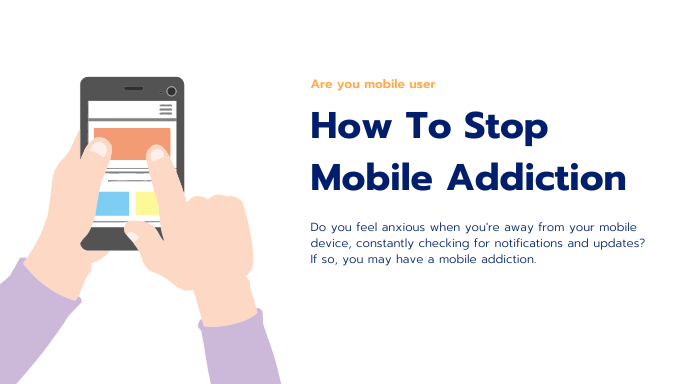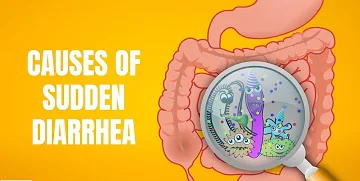How to Stop Coughing Useful Tips and Tricks

Are you constantly suffering from an uncontrollable cough that won’t go away? If so, you are not alone. A cough is something we’ve all experienced at some point in our lives, whether it’s from a tickling throat, dust particles irritating our lungs, or a runny nose after sinus congestion. Due to dripping. But what exactly causes these coughs, and how can we end them? This article will explore the various reasons behind coughs and discuss effective ways to stop them, whether caused by a common cold, flu, or any other condition. read more on how to stop coughing
Can we Cure Cough with Home Remedies?
When it comes to stopping coughing at home, there are several remedies you can try. First and foremost, stay hydrated by drinking plenty of fluids such as water, herbal tea, or warm broth. Additionally, using a cool-mist humidifier or vaporizer in your room can help soothe your throat and reduce coughing caused by dry air. A spoonful of honey can work wonders for those struggling with mucus buildup due to its natural cough-suppressing properties. Studies have also shown that ingredients like aloe and menthol found in over-the-counter products can relieve cough symptoms.
However, be cautious when giving these remedies to children under 12 months old, and always follow the recommended doses. It’s important to note that aspirin should never be given to children or teenagers as it can lead to a rare but serious condition called Reye’s syndrome. Suppose your cough is accompanied by other symptoms such as fever or difficulty breathing. In that case, seeking medical attention is important as it could be a sign of an underlying infection.
Calm a ‘Wet’ Cough
If you’re dealing with a “wet” cough characterized by excessive mucus and phlegm, there are specific steps you can take to calm it down. Firstly, consider using an expectorant medicine to help thin and loosen the mucus in your airways, making it easier to cough up and clear out. This can provide relief from the feeling of having “gunk” stuck in your throat. Additionally, addressing any underlying causes of the cough, such as postnasal drip from sinus congestion, is crucial. Treating allergies or sinusitis can help reduce the mucus produced and alleviate the cough symptoms.
Suppose you have a fever or experience shortness of breath and a wet cough. In that case, it’s important to consult a doctor as these could be signs of more serious conditions like pneumonia, chronic bronchitis, asthma, or even emphysema. Sometimes, a doctor may prescribe specific cough medicines or treatments to address the underlying cause of the cough and provide relief.
Soothe a ‘Dry’ Cough.
If you find yourself dealing with a persistent dry cough, there are steps you can take to calm it down. First and foremost, try to identify the trigger of your cough. Is it a cold or flu? Irritants like dust or smoke? Once you better understand what might be causing your cough, you can take appropriate action.
Over-the-counter cough suppressants can be helpful when it comes to treating a dry cough caused by a cold or flu. These medications work by suppressing the urge to cough, giving your irritated throat a break, and allowing it to heal. However, always follow the recommended dosage and consult a healthcare professional if you have any concerns.
Another tried-and-true method for soothing a dry cough is cough drops or throat lozenges. These can provide temporary relief by numbing the back of your throat and reducing the tickle that triggers a cough. Additionally, sucking on hard candy can have a similar effect.
If your dry cough persists or worsens, especially in children, it’s important to consult a healthcare professional. They can evaluate the symptoms and determine if an underlying condition needs to be addressed. It’s especially crucial to seek medical attention if your child has a persistent cough, as it could signify something more serious.
Cough Medicine and Children
When giving cough medicine to children, it’s important to consider their age and the type of medicine you’re using. Different products may have different recommendations for ages, so reading the label carefully and following the instructions is crucial.
Some cough medicines are not recommended for children under a certain age due to potential side effects. It’s always best to consult with your child’s doctor before giving them any medication, especially if they are younger than the recommended age on the packaging. Your doctor can guide you on which type of medicine is appropriate for your child’s needs.
Will Antibiotics Stop a Cough
Antibiotics are not usually the go-to solution when it comes to treating coughs caused by infections like colds or the flu. Why? Well, that’s because most coughs are caused by viruses, not bacteria. Antibiotics only work against bacterial infections, so they won’t do much to help with a viral cough.
If you visit your doctor with a cough, they will likely determine the underlying cause first. Viral infections like colds or the flu are usually self-limiting. They will resolve on their own with time and some good old-fashioned rest. Taking antibiotics for these types of coughs can contribute to antibiotic resistance, a growing concern in our society.
However, there are instances where an antibiotic may be necessary. If your doctor suspects your cough is caused by a bacterial infection, such as a sinus infection or pneumonia, they may prescribe antibiotics. In these cases, the antibiotics will target the bacteria causing the illness and help alleviate symptoms, including the cough.
Trusting your doctor’s judgment when prescribing antibiotics for a cough is important. They have the knowledge and expertise to determine whether antibiotics are necessary based on your specific symptoms and medical history.
Coughs From Allergies and Asthma
If you’re experiencing coughs from allergies or asthma, it’s important to consult with your doctor for proper diagnosis and treatment. Allergies can trigger coughing due to the body’s immune response to allergens. Your doctor may recommend an antihistamine medicine to help alleviate allergy symptoms and reduce coughing.
In the case of asthma-related coughs, your doctor may prescribe specific medications to manage your condition. These may include bronchodilators or inhaled corticosteroids to help open your airways and reduce wheezing or breathlessness.
Over-the-counter antihistamines available at drugstores can provide temporary relief; however, some may cause drowsiness. It’s best to read labels carefully and choose non-drowsy options to stay alert throughout the day.
Smoker’s Hack
If you’re a smoker and experiencing a persistent cough, it could be a warning sign of something more serious. Smoking can cause inflammation in the airways and increase your chances of developing conditions such as bronchitis or even cancer. It’s important to consult your doctor if you notice blood in your cough or if it becomes chronic.
What Else Causes Coughs?
Coughs can also be caused by acid reflux or gastroesophageal reflux disease (GERD). Acid from the stomach can irritate the throat and lead to coughing. If you suspect that acid reflux is causing your cough, it’s important to seek medical advice. Your doctor may recommend lifestyle changes, medication, or other treatments to help manage your symptoms.
Some medications, such as ACE inhibitors used for high blood pressure, can cause a persistent cough as a side effect. If you’re taking this medication and experiencing a cough, discussing this symptom with your doctor is important. They may be able to adjust your medication or prescribe an alternative that doesn’t have this side effect.
Whooping cough is another possible cause of coughs, especially in children. It is a highly contagious respiratory infection caused by the bacterium Bordetella pertussis. The cough associated with whooping cough is often severe and accompanied by a “whooping” sound as the person inhales. Suppose you or your child have a persistent cough that is worsening and accompanied by other symptoms such as fever, fatigue, and runny nose. In that case, seeking medical attention for proper diagnosis and treatment is important.
In some cases, heart failure can also cause coughing. When the heart cannot pump blood effectively, fluid can accumulate in the lungs, leading to coughing and shortness of breath. Suppose you experience persistent coughing and other symptoms such as swelling in the legs or abdomen, fatigue, and difficulty breathing. In that case, it’s important to seek medical care as this could be a sign of heart failure. Your doctor can evaluate your symptoms and provide appropriate treatment options.
When to Call the Doctor
A deep cough accompanied by lots of mucus can be a sign of a respiratory infection such as bronchitis or pneumonia. If you notice that your cough is producing thick, discolored mucus or if you cough up blood, it’s important to consult with your doctor. These symptoms may indicate a more serious infection that requires medical treatment.
Wheezing, shortness of breath, and a tight chest are all concerning symptoms that should prompt a visit to the doctor. These could be signs of asthma or chronic obstructive pulmonary disease (COPD), both of which require proper diagnosis and management. Your doctor can perform tests and recommend appropriate treatments to help alleviate your symptoms.
If you have a fever along with your cough, especially in children, it’s important to call the doctor. A fever can indicate an underlying infection that may require medical intervention. Additionally, if your child is experiencing chills or has nighttime coughing fits, seeking medical attention is crucial. These symptoms could indicate a more serious condition that needs to be addressed by a healthcare professional.






